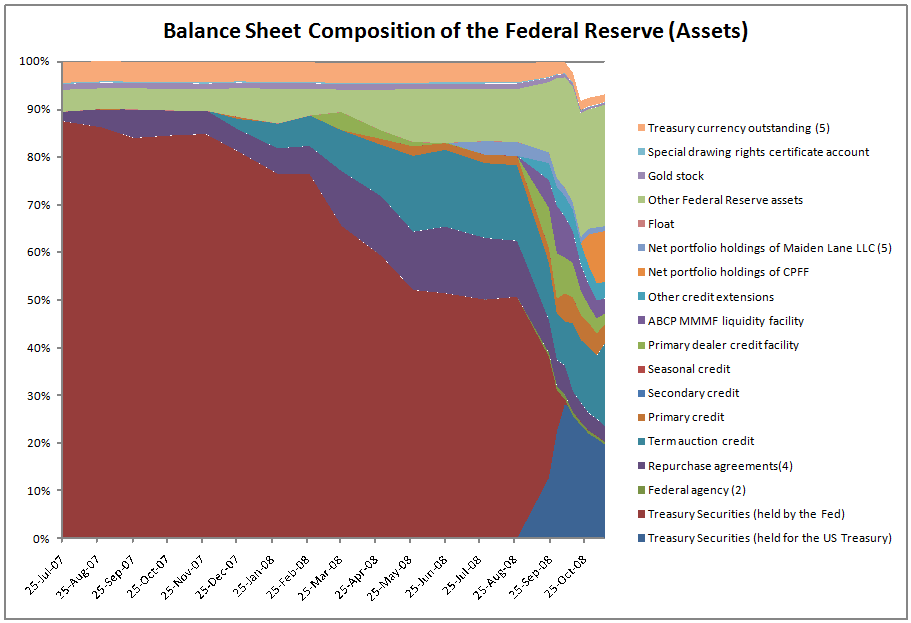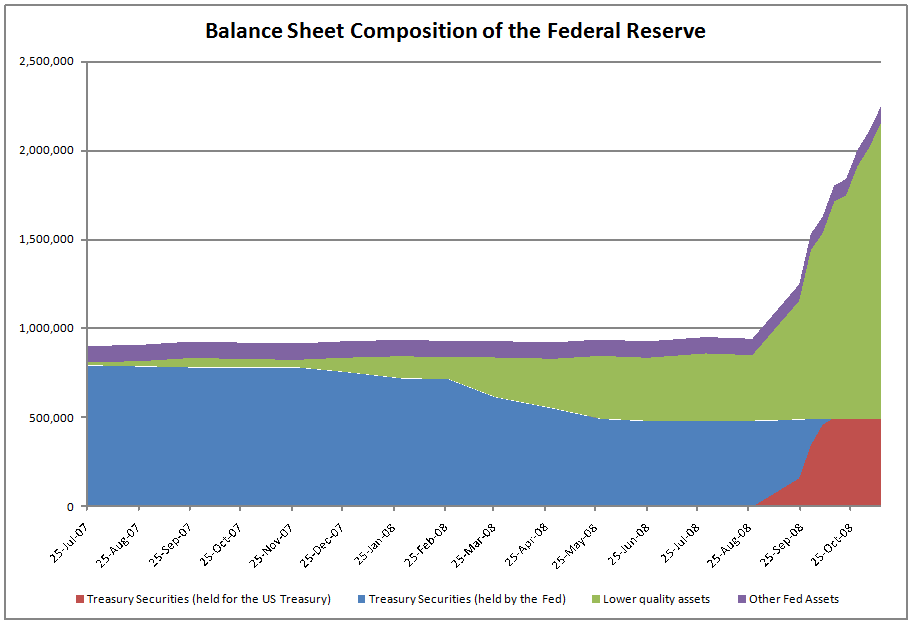Bailouts Must Be Odious
(Alternate Title: Be a Bank; Or, Just Look Like One.)
There has been a significant shift in bailout psychology over the last week or two.? The grand shift has been to make the cost of receiving money from the US government smaller, which gets “banks” to line up for cheap money, and non-banks like CIT and American Express to become banks.? Insurers with Thrift arms can be “banks” as well.? The hurdle for help is low.
This is the wrong philosophy.? Bailouts have to be the best of a bunch of bad solutions, rather than something financial companies like.? Common and Preferred Equity need to get whacked hard, and subordinated debt needs to take a haircut.
The present situation has the Treasury coming back to Congress for the second $350 billion quite rapidly, with little accountability for what they have done already.? How can we tell that what the Treasury has done is right?? How can we tell that it is fair?? Answer: we can’t.
In giving and forcing money into healthy institutions, the Treasury has wasted money, in my opinion.? Far better to give it to marginal institutions that need a little to get by in exchange for a large stake in the institution.? But what they have done so far resembles giving aid to the largest politically connected firms, whether they need it or not.
Going back to Walter Bagehot, Central Banks should lend without limit at a penalty rate during a crisis.? That rate should hurt, but it is better than no access to credit.? To do otherwise is to shortchange taxpayers, and place the value of the Dollar at risk.? That is what we are doing now.
Consider these graphs:
http:/www/alephblog.com/wp-content/uploads/2008/11/
Or, the oversimplified version:
The Federal Reserve was once a simple institution. Bloated with too many people for the task at hand, but simple all the same.? But now, the Fed no longer controls its destiny.? What high-quality securities that Fed holds belong to the US Treasury.? And, if you look at the top graph, you will see a gap in the Northeast corner.? That represents the degree that the Fed is short high quality Treasury assets.? Not pretty.? In a real crisis, where the Fed would face a call on cash, the result would either be inflation or severe recession.
Our government is rhyming with what it did during the Great Depression; they aren’t finding ways to reduce overall debt levels.? They are moving deck chairs around on the Titanic.? Our economy will not be healthy until we reduce debt relative to GDP.? That’s not on the agenda now, which means we might imitate Japan for the next few decades, assuming our entitlements crisis doesn’t do us in.
Links:


